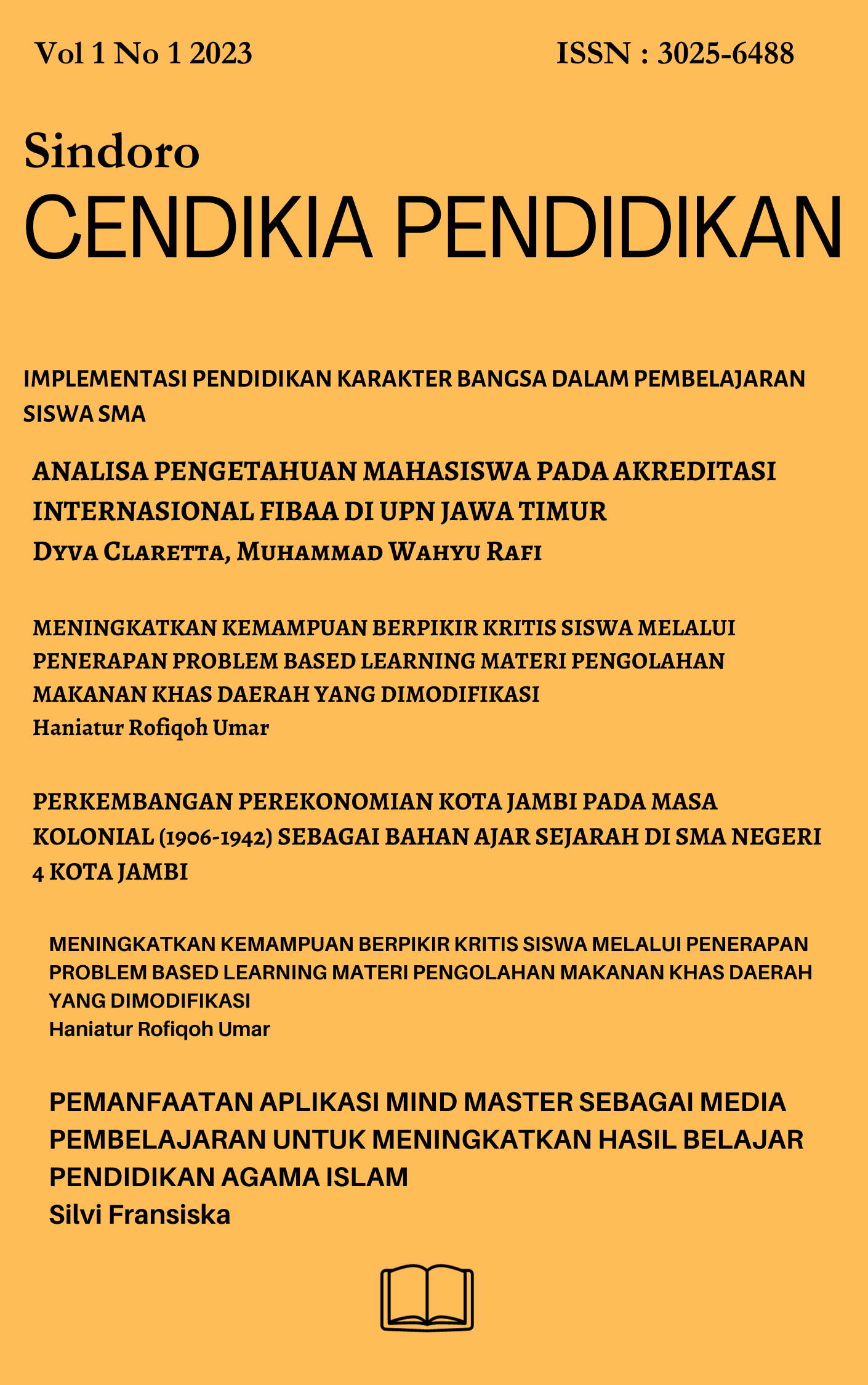PERAN PENDIDIK DALAM MEMBANGUN LINGKUNGAN PEMBELAJARAN YANG EFEKTIF DI SLB-B KARYA MURNI
Main Article Content
Abstract
This study aims to explore the role of educators in creating an effective learning environment for deaf and speech-impaired students at SLB-B Karya Murni. The research background is based on the importance of establishing an inclusive and adaptive learning environment to meet the special needs of students, considering challenges such as limited resources, insufficient teacher training, and less varied teaching approaches. The research method employed was descriptive qualitative with a case study approach, including direct observation, semi-structured interviews with teachers, and documentation analysis in the form of photos and videos. The results indicate that educators play a key role in creating a conducive learning environment through the use of visual media, sign language, and flexible, communicative pedagogical approaches. Factors such as empathy, patience, and the ability to build emotional connections were also proven essential in enhancing student participation and comprehension. Additionally, the study identifies the need for adequate learning facilities, such as educational images, whiteboards, and playgrounds, as well as the importance of collaboration among teachers, parents, and professionals. The findings recommend improving teacher competency through continuous training, strengthening stakeholder collaboration, and providing facilities that support student needs. Thus, this study contributes to the development of more effective inclusive educational practices in special needs schools (SLB), particularly for deaf and speech-impaired students.
Article Details
Section
This work is licensed under a Creative Commons Attribution-ShareAlike 4.0 International License.

